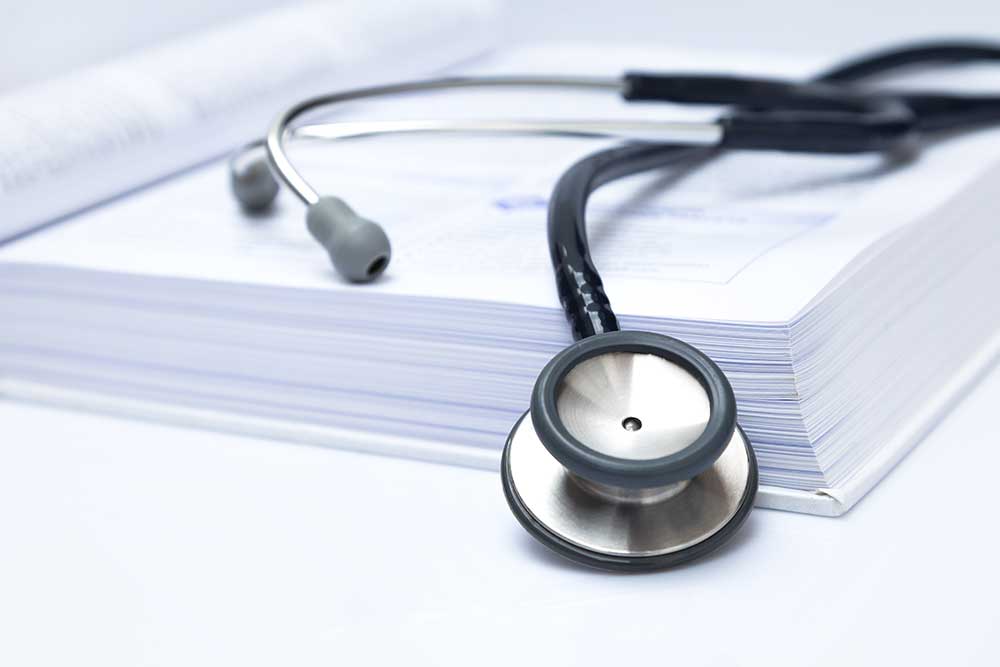Weight Gain and Hysterectomy – Are you Overweight?
Keeping a healthy weight is important to nearly everyone to have a healthy heart and body to live a longer, better life. That’s why preparing to maintain your weight after a hysterectomy is especially important.
One study showed that women undergoing hysterectomies are at higher risk for weight gain in the first year after her hysterectomy, meaning women must remain conscious about their food choices and combat a sedentary lifestyle to avoid seeing the scale go up.
What Causes Weight Gain?
When we age, our metabolism slows and we begin to become more sedentary. Even if you still exercise and remain active, the downtime for healing from a hysterectomy will slow you down for several weeks and may cause your weight to rise. For women who also undergo an oophorectomy procedure with their hysterectomy may struggle even more as their body is thrown into immediate menopause.
As the hormones struggle to balance, depression is common among other symptoms like hot flashes, difficulty sleeping and joint pain. In the midst of all of these life transitions, your weight has an easy possibility to suffer.
What Can We Do About It?
Maintaining your weight after a hysterectomy comes down to your diet. Since you will recover physically for at least two weeks and may need to wait a month or more before strenuous physical activity, the food you put in your body is the most important aspect to avoid weight gain.
Eating a diet of whole foods like fruits, vegetables and proteins (beans, nuts, eggs, chicken, beef, fish and pork) will ensure that your body receives vitamins and nutrients needed to heal your body. Whole foods are not man made and do not have added sugar or processed ingredients.
Check out the Whole30 diet for more information on eating only whole and natural foods. Whole30 recommends three large meals a day and an occasional snack. Unlike calorie counting diets, Whole30 encourages you to eat mindfully until you are full. There’s no counting carbs or calories because you’re only eating whole and natural foods. As long as you eat the right things, Whole30 promises success in weight management and a healthier lifestyle.
Other women may find a calorie counting diet easier because while you are more restricted in portion, you can include foods like bread and cheese. Weight Watchers Smart Points plan promotes a healthy pattern of eating while allowing you to occasionally indulge.
If you are unsure of what foods you should eat or what eating plan to follow, ask your doctor to refer you to a nutritional consultant who can make a food plan that’s unique to your body and its nutrient needs.
Start Sooner Than Later
To prepare for your hysterectomy, make a plan for how you’ll eat healthy, then begin to incorporate your new lifestyle of eating a few months before your surgery. By the time you undergo your hysterectomy procedure, you won’t have to worry about starting a brand new diet while you’re recovering and in pain.
- Prepare freezer meals ahead of time to warm in the microwave during recovery.
- Buy healthy snacks like fruits and nuts to keep near your bed, but don’t snack all day and don’t forget to eat full meals.
- Stock your fridge with deli meats, eggs, veggies, and other quick foods that take little to no preparation.
- Keep plenty of entertainment around like books, games, and movies to help you pass the time. If you start to feel bored, you’re more likely to reach for food and mindlessly eat.
Talk with your doctor to see when you are able to begin exercising again. Getting off the couch and being active along with your healthy eating habits can make for a lifestyle that not only keeps you from gaining weight during hysterectomy recovery but keeps you fit and healthy for years afterward.
After your hysterectomy, you must take your recovery one day at a time. Eating healthy is the same way. There’s no better time to take control of your health than today.
Content sponsored by Nevada Surgery and Cancer Center (NVSCC). Located in Las Vegas, Nevada, we treat gynecologic cancers including Ovarian, Cervical, Endometrial, Vulvar and Vaginal. Specializing in robot-assisted surgery, we also surgically treat fibroids, endometriosis and other complex gynecologic conditions with a minimally invasive approach. Doctor Lynn D. Kowalski, M.D., has served Las Vegas since 1998 with compassion and innovation.







